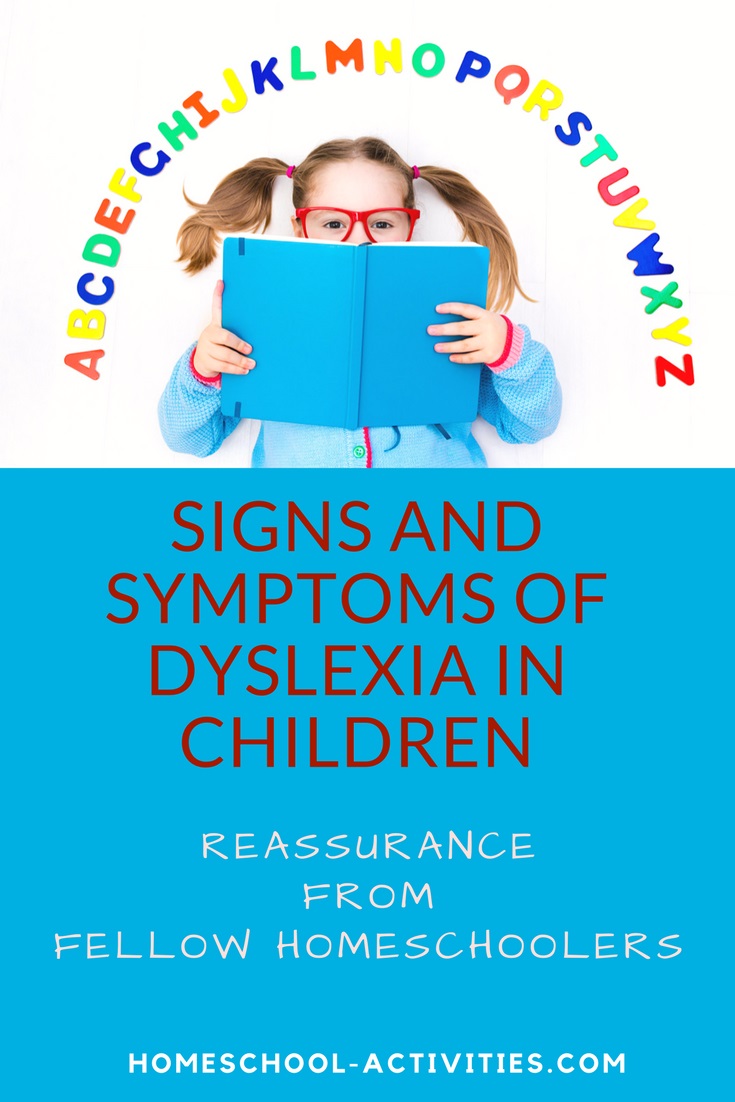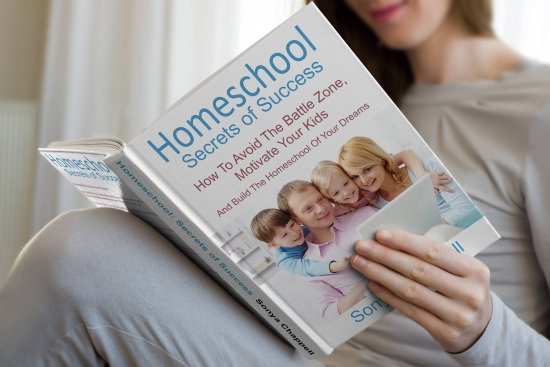Signs And Symptoms Of Dyslexia
Knowing the signs and symptoms of dyslexia in children is the first step so you can get help from homeschooling families to find the best way to help your child learn.
"I would like to know more about what dyslexia is. My son is a good reader but the problems he has makes me wonder if it's a big enough issue to be dyslexia."
~ Claudia, Courageous Homeschooling Facebook Group
Are you worried your child is a slow reader or muddling up numbers?
If you are homeschooling, this can be even more of a worry because there are no 'experts' around to tell you if they think there is a problem.
Knowing the signs and symptoms of dyslexia in children can be a real help.
More importantly, once you know your child is dyslexic you can get unique advice from homeschooling families about what to do and what they have found works.
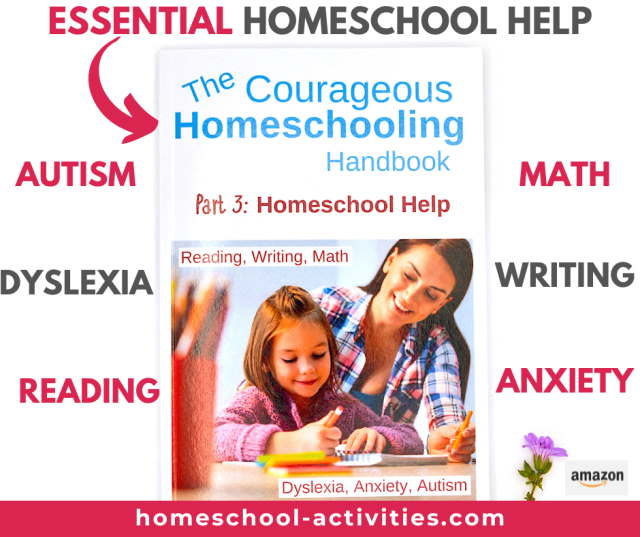
The third Courageous Homeschooling Handbook brings together the largest group of homeschooling families ever to show how homeschooling can transform your child's life and share teaching ideas and resources.
N.B. You can see more about the Handbook here. The book also covers reading, writing, and math as well as challenges like autism and anxiety.
Please note that the book links on this page are affiliate links so if you buy I receive a small commission at no extra cost to you.
How Common Is Dyslexia?
Like most things, we can only guess at how many children have dyslexia because the signs and symptoms of dyslexia are not always easy to detect.
In the past, many children went un-diagnosed and many children slip through the net today - even if they are in school.
What we do know is that dyslexia is the most common learning disability in the world.
They estimate it affects 3%-7% of the population. But up to 20% of the population may have signs and symptoms of dyslexia.
So if your child has it, be reassured that dyslexia is very common and can be overcome.
The way to help is to change the way you teach to suit the way your child learns.
You'll find a list of useful free resources for teaching with dyslexia here.
Signs And Symptoms Of Dyslexia
We found out I'm dyslexic a few years ago... I had trouble reading (and would read) the same sentence over & over. I read numbers backwards & repeating them is tough and so is reading out loud.
Some things just didn't click as easy as others...I knew I wasn't good at math lol. Numbers were not my best & still aren't."
~ Ami, Courageous Homeschooling Facebook Group
I'm
also dyslexic but have found for me I have to write the words then when
I want to remember how to spell it, I close my eyes I see myself
writing it.
Every person is different but I felt like rubbish at school as I struggled with this.
~ Claire, Courageous Homeschooling Facebook Group
The biggest thing to remember about the signs and symptoms of dyslexia is that every child is different.
Your child may struggle with some things on this list and find others easy; but they could still have dyslexia.
In fact the only thing that really stands out about dyslexia is how much it varies from one child to another.
"Each dyslexic kid has a different learning profile. I have one with an auditory processing issue and dyscalculia and another who doesn’t and is great at math. They’re all different."
~ Suzanne, Courageous Homeschooling Facebook Group
Some of the common signs and symptoms of dyslexia in children can be:
- Being slow learning to talk (there are many other reasons for this)
- Having problems with speech - like not being able to say long words properly or jumbling up words
- Rhymes and rhyming may not make any sense
- Difficulty remembering things, listening and paying attention
- When talking, using the wrong words or saying sentences in a way which doesn't make sense
- Difficulty learning the alphabet, days of the weeks, colors, shapes, and numbers
- Trouble spelling - putting letters and figures the wrong way round (6 instead of 9), reversing letters like b and d and inverting u and n, spelling words as they sound (wont instead of want), spelling words in the wrong letter sequence (hlep instead of help) and learning the connection between letters and sounds.
- Trouble with handwriting and fine-motor coordination like tying up shoe laces, using scissors and doing up buttons.
- Choosing which hand to write with.
"What I would say is that there are many types of learning disabilities, not just dyslexia. Just something to keep in mind. "
~ Suzanne, Courageous Homeschooling Facebook Group
Have a look here to see the strategies homeschooling families use to help teach their dyslexic child.
Common Signs Of Dyslexia
Here is Suzanne again to put that list into real life for us:
For my kids (and for the classic dyslexic), what we noticed is that words are spelled phonetically and that vowels are often altogether
missing from words. Certainly letter and number inversions, and like
you noted, writing the number 4 first when trying to write 14.
2/3
of my kids had a rhyming issue. Also pretty common. They can tell you
if two words rhyme, but if you ask them for example: “What rhymes with
bite?” they can’t pull a rhyming word out of their brain.
Another
common sign is problems with tracking during reading. Or in the case
of one of my kids, words move around on the page, and another kid
letters spin and vibrate.
And dyslexic kids typically have trouble with sight words.
Trust your gut. It doesn’t matter what anyone says, including a school teacher (this happened to us), if your kid tells you they’re struggling, if you know in your gut that something is going on, trust yourself. Always.
~ Suzanne, Courageous Homeschooling Facebook Group
Signs Of Dyslexia Test
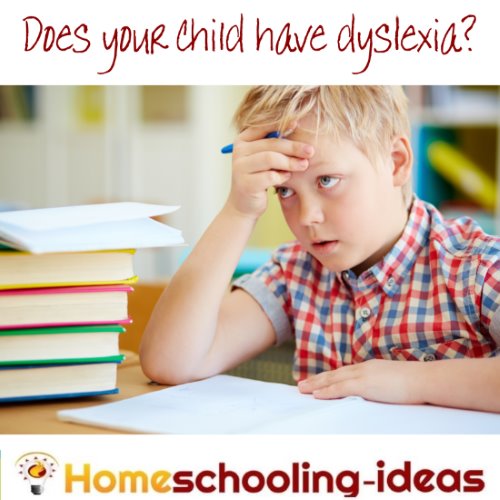
If you're worried your child may be dyslexic, my friend Julie can tell you about how to run an online test yourself to assess dyslexia symptoms or early signs of dyslexia in your child.
The screening results are not a definitive diagnosis of dyslexia but a way to identify areas of concern – and help you decide whether you need professional help.
As Julie says, when you are homeschooling and ‘outside of the school system’ it can be daunting enough teaching your child to read. If you suspect your child has dyslexia then it is even more worrying.
You can see more about the test here."It’s worth the expense to learn how your kid learns; their strengths; their weaknesses. Public school disability testing (in the USA) is useless. They are not allowed to diagnose and they will skew the results so that the school district does not have to give you $ or resources. Also, the test givers aren’t always trained."
~ Suzanne
Homeschooling With Dyslexia
You can see real-life examples of how homeschooling parents have beaten dyslexia here.
And here is a bit of reassurance from Ami that being at school is no guarantee that the teachers would pick up the signs and symptoms of dyslexia in your child.
I fell through the cracks in school not getting help (for my dyslexia).... ...I never caught up. By 10th grade I dropped out.
At
age 32 I finished 4 credits for my high school through adult learning at
home.
~ Ami, Courageous Homeschooling Facebook Group
In fact you are more likely to pick up the signs and symptoms of dyslexia in your child when you are homeschooling because you are much more in tune with how your child learns.
By homeschooling, you will be able to find the method which works best and adapt your teaching to help your child.
Come and see the teaching methods and ideas 4,000 homeschooling families contributed in The Courageous Handbook: Homeschool Help.
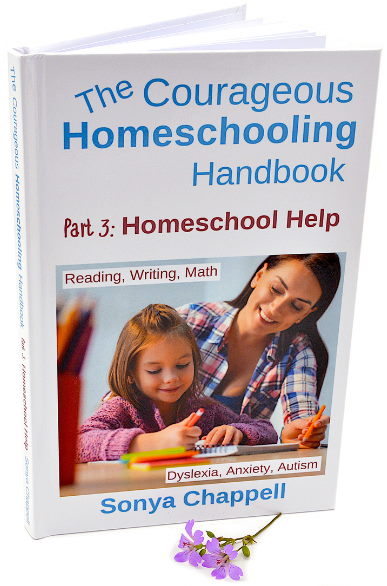
Please note that the book links on this page are affiliate links so if you buy I receive a small commission at no extra cost to you.
"So very proud of my dyslexic boy who, after being homeschooled, graduated summa cum laude with a First Class Degree in Computer Science. He would never have achieved that without the support of his homeschooling environment."
Wendy, The Courageous Handbook: Homeschool Help
Love this page? Help me spread the word by sharing...
Homeschooling > Dyslexia > Signs
"Just had a look through your monthly
newsletter focusing on math. Thanks so much for all the links and
ideas. It's brilliant!" ~ Diana
"Hi....I totally love all your posts and enjoy reading them....the kids love the activities and enjoy them through and through." ~ Bianka
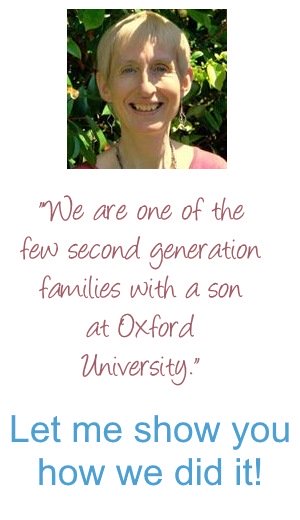
Free Newsletter

Must-have Handbook
4 books in one: Bargain discount deal!
"With the education system failing so many brilliant
children it's great to be able to have resources like your website for
inspiration, ideas and just a sense of belonging. What you are doing for
your children is priceless." ~ Natalija
"I really appreciate your time and effort that goes into your posts... It's nice to see that you are a 2nd generation homeschooler." ~ Teresa
"Your newsletters & book have helped us through our journey. For that I can only thank you.
Please, please, please keep it up, people like you make our home school life so much easier." ~ Kelly
"I have joined paid sites that were not even one percent as great as
this site. Really amazing what you are doing and so so helpful thanks so much!" ~ Eli
